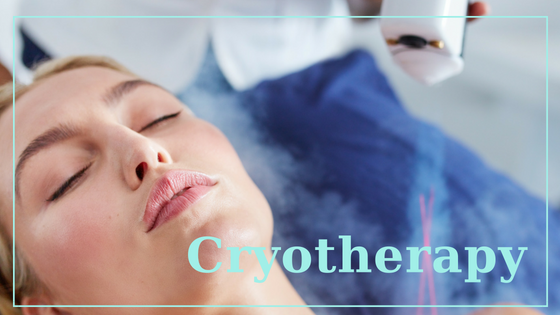Cryotherapy for Sunspots and Solar Keratosis

A few treatment options exist to treat solar keratosis, known as sunspots on the face.
At Bartchall Medical, we will assess which treatment option is right for you based on medical findings and consultation.
One treatment which may be recommended is cryotherapy. Cryotherapy in a medical setting is the general or local use of liquid nitrogen to freeze and destroy abnormal cells including sunspots, superficial skin cancers, solar keratosis and skin cancer cells.
The use of liquid nitrogen is a time-tested treatment, and if performed correctly, the incidence of scarring is very low.
Why treat sun damage?
Brisbane is known to have one of the highest rates of sun damaged skin in the world. In many cases, sun damage presents itself in the early stages as sun spots, or solar keratosis, a rough, scaly spot found on the damaged skin which is considered to be precancerous. If left untreated, these skin lesions can lead to skin cancer. Some forms of skin cancer are highly aggressive and can be fatal if not treated early.
Bartchall Medical offers annual skin checks as part of the proactive and early detection of abnormal skin cells.
What to expect during a Cyrotherapy procedure?
The liquid nitrogen is applied using either the cryospray canister or a cotton tip to the cancer and the immediate surrounding tissue. The application may be repeated as required. A dressing may then be applied to the wound and should be kept clean and dry. A scab will form over the treated area during the following days.
Our medical practitioner, Dr Donna, will explain what you can expect before, during and after your procedure during your initial consultation.
What to expect after the procedure?
It is normal for redness and swelling to occur at the treatment site. The formation of a blister can also be expected. The dressing should be changed frequently as fluid will continue to ooze from the treatment site for a number of days until a scab forms. Some patients may experience minor pain, in which case, over the counter pain medication can be taken. Typically, the healing process will take four to six weeks for treatments on the head or neck. Treatment on other parts of the body could take longer to completely heal.
Possible Side Effects of Cryotherapy Treatment
Cryotherapy is the most common procedure performed by general practitioners who’ve undergone specialised training in the treatment of skin cancers and sunspots. While serious side effects are rare, as with any treatment, there is always the risk of some side effects. Some of the possible side effects include;
- Swelling
- Scarring
- Bleeding or blistering
- Infection of the wound
- Loss of hair or pigmentation at the treatment site
Our doctor, Dr Donna, will discuss the risk of any side effects and answer any questions you may have prior to performing the procedure.
Meet Dr Donna, Bartchall Medical

Dr. Donna Challinor – GP
Dr. Donna Challinor began her career in healthcare as a registered nurse.
In 1996 she graduated from the James Cook University with a Bachelor of Science (Hons). She attended the University of Qld to complete her MBBS (medical degree) in 2002. Following completion of two years of anaesthetics and intensive care training, Donna embarked on General Practice, completing her Fellowship of the Royal Australian College of General Practitioners in 2009 (FRACGP). In addition, Donna holds a Diploma in Women’s Health from the King Edward Women’s Hospital Perth as well as Healthcert certificates in Skin Cancer Medicine.
Donna has worked in General Practice with a passion for skin health including skin rejuv and regen after having dealt with skin cancers whilst working in her home area of North Qld.
Donna has continued to work in General Practice in a number of states across Australia; Tasmania, Victoria, Western Australia (where she managed to develop her own skin cancer clinic with success), to return to the SE Qld area. Professionally Donna continues to develop her depth of expertise; possessing postgraduate certificates in skin cancer medicine, maintaining membership to the Skin Cancer College Australia, and has commenced her Masters in Skin Cancer Medicine.
